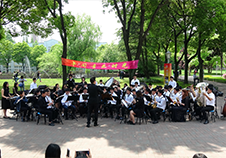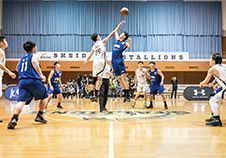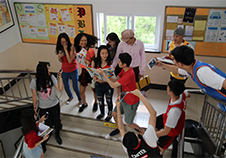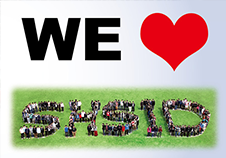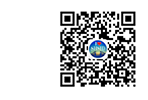
Events
Grade 11:English Class Debate
Grade 11:English Class Debate
Students from all four AP English Language and Composition classes gathered to have parliamentary debates on the subject of ethics. There were three debates in total, which took place from February 24thto 26th. In all, there were four teams, composed of students from each of the three classes.
The debate was assigned before the winter holiday. Teams were challenged to propose the perfect SHSID mission statement. Each team member had a specific role in the debate. There were eight active roles, and 8 passive roles. This meant that eight students from each team had to volunteer to be orators, while the other members developed and researched the propositions. The active roles consisted of the introduction, the constructive, the inquisitor, the human shield, the rebuttal, and the closing statements. Those in charge of the introduction briefly introduced the overall mission highlighting the main points, the constructive members focused on validating their mission with textual evidence, the inquisitor was to listen attentively to the opponent’s argument and to find holes in it. They were to ask questions of the other team to try to unearth flaws in order to give the rebuttal role ammunition against their opponent’s argument. The human shield was to prevent this from happening by standing up to scrutiny and anticipating possible attacks. Those responsible for the conclusion were to summarize the argument and to incorporate fully established positions having listened to the debate.
The teams for the first round of the debate were decided at random and a coin flip determined that the first round of the debate would begin with the Terrifying Teachers. The team began by limiting their argument by placing it in a domain of utilitarianism. They argued for a mission that seeks to cultivate the greatest student and faculty happiness by focusing on four main points: facilities, increased parent, student, and teacher interaction, a wider variety of activities, and self-challenging programs. This team built its case by quoting Aristotle, Nietzsche, Peter Singer, and through appropriate allusions and compelling analogies. The Forces of Quentin Tarantino were the next team to speak. They argued their mission to make students more globally aware. Their argument was that more globally aware students are better equipped to truly understand diversity, to holistically process the challenges facing our society, and to ultimately create alumni who take an initiative to affect change and create a better world. They also quoted Aristotle, and Nietzsche. The first round of the debate raged on, not without a few bumps along the way, and finally came to a screeching halt for the Tarantino team. It was decided that the teachers had made a more compelling argument.
The next round of the debate was to be a battle between the Jedi Knights and the Powerful Pandas. Both teams walked on the stage in full costumes with the Jedi Knights draped in monk robes and brandishing light sabers. The powerful Pandas did not look so powerful in their cute panda hats, but they had intensity in their eyes that conveyed that they were a force to be reckoned with. The Jedi’s began by arguing that their mission was to promote a comfortable and supportive atmosphere while instilling clear ethics in the student body. They argued that their mission was to give all students the sense that they are worthy human beings and to respect morality so that students will also graduate to make their subsequent communities more ethical. They also argued that morality is a universal language that students should adopt in order to function better in society. The Pandas stood up on two feet and roared out their mission. Their mission was to promote individuality. They encouraged students to engage in dialogue, dialectics, and debate. They encouraged students to approach dissent with an open mind and to allow differing opinions to alter each other’s sense of individuality. They promoted neither a rigid nor a static sense of individuality, but one that was malleable and transformative. They focused on promoting diversity and tolerance. Despite both teams performing extremely well, the Jedis’ light sabers unfortunately could not deflect the Pandas’ roar and the Pandas won the debate in a decisive victory.
Principal ma, Director Liu, and AP coordinator Jiang Hao would be in the audience as the judging panel for the final round, which turned up the heat on the competition. The Pandas, dressed in their fuzzy Panda hats, and the Teachers, dressed in suits, had refined their previous arguments and developed their missions further to prepare for this brutal final round. The debate unfolded to show the teams’ missions as a battle between achieving the greatest amount of happiness vs. achieving the most well rounded sense of individualism. The Teachers scolded the Pandas for promoting selfishness and disagreements, while the Pandas pointed their claws at the Teachers’ vague notion of happiness as something naïve and unrealistic. A decisive blow to the Teachers’ argument surfaced in the rebuttal round when a Panda calmly stated that “in order to achieve your mission, you first must achieve ours.” Both sides performed valiantly, but in the end the Pandas were deemed to be the victors of the competition by a substantial margin.
Mr. Slonim, Mr. Way, and Mr. Cunningham conveyed in the final round that their mission for the debate was to promote interclass cooperation, successful utilization of class texts, skills in argumentation, and to provide a chance to showcase the 11th grade AP language students’ vitality and academic discipline. It was clear that the majority of students approached this debate with a sense of determination. For many, this debate was personal; it was a chance to shine. And shine they did.
(Written by Eric Cunningham Picture by News Club of Grade 11)








